
Cut out sugary drinks
Not only do sugary drinks contribute to obesity and diabetes, they may also increase your risk of endometrial cancer. According to research from the University of Minnesota School of Public Health, women who drank large amounts of sugar-laden beverages had up to an 87 percent higher risk of endometrial cancer, likely due to the pounds these drinks can add. Make sure you know these 9 surprising causes of cancer.
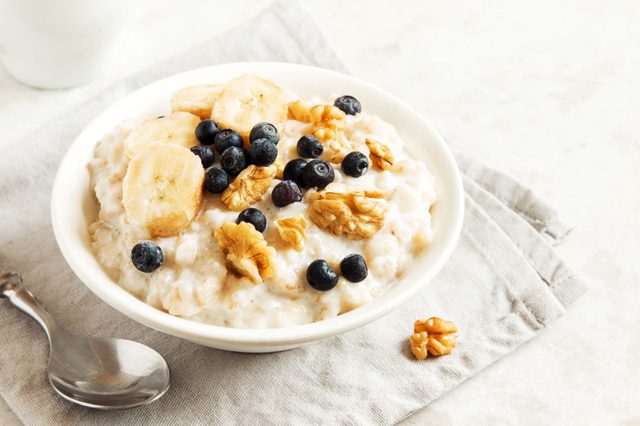
Eat “resistant starches”
Resistant starch, found in foods like green bananas, rolled oats, and white beans, may help reduce the increased risk of colon cancer from a diet high in red meat. According to the journal Cancer Prevention Research, participants in a study had a 30 percent increase in cell proliferation in the rectal tissue after eating 300 grams of lean red meat a day (about 10 ounces) for four weeks. After adding 40 grams of resistant starches a day while eating the meat, cell proliferation levels went back down to normal. These are the 50 cancer myths you need to stop believing right now.

Stand more and sit less
New studies suggest that people who spend most of their day sitting are at a 24 percent higher risk for colon and endometrial cancer than people who spend less time in a chair. Other research showed that people who spent more time in front of the TV had a 54 percent increased risk of colon cancer than those who watched less TV. Time to switch to a standing desk? If that’s not an option, get up and walk around for a few minutes at least once an hour. Here are the 29 things you think cause cancer but don’t.
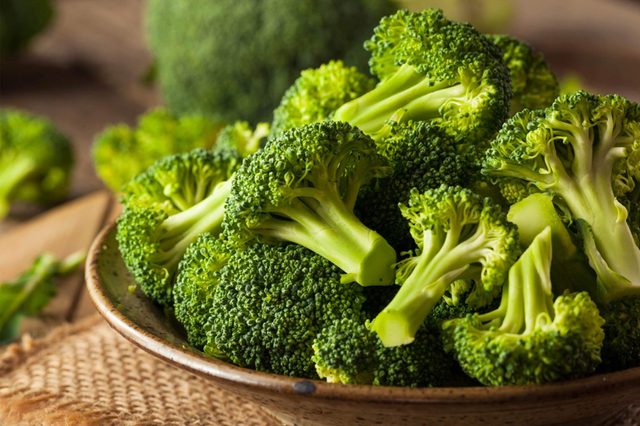
Steam your broccoli
Broccoli is a cancer-preventing super food—one you should eat frequently. But take note: A study done in 2008 by Italian researchers found that steamed broccoli contains more glucosinolate (the healthy components of the vegetable) than boiled, fried, or microwaved broccoli. Nutrients leach into the cooking water instead of remaining in the vegetable, according to the Harvard Family Health Guide.
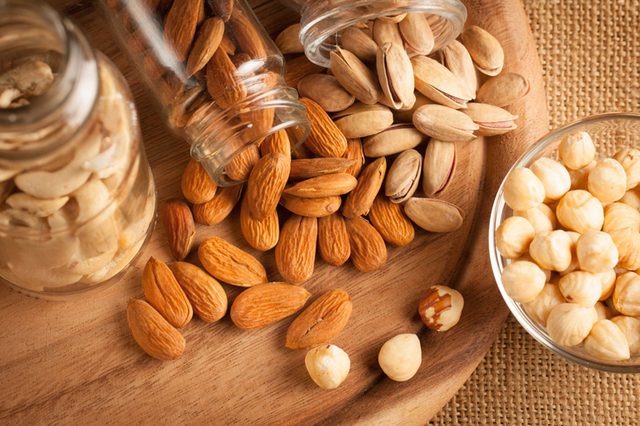
Eat Brazil nuts
They’re rich in selenium, a trace mineral found in soil that convinces cancer cells to commit suicide and helps cells repair their DNA. A Harvard study of more than 1,000 men with prostate cancer found those with the highest blood levels of selenium were 48 percent less likely to develop advanced disease over 13 years than men with the lowest levels. And a dramatic five-year study conducted at Cornell University and the University of Arizona showed that 200 micrograms of selenium daily—the amount in just two unshelled Brazil nuts—resulted in 63 percent fewer prostate tumors, 58 percent fewer colorectal cancers, 46 percent fewer lung malignancies, and a 39 percent overall decrease in cancer deaths. Make sure to get selenium from food, not supplements. Research shows that men who consumed selenium supplements actually had an increased prostate cancer risk.
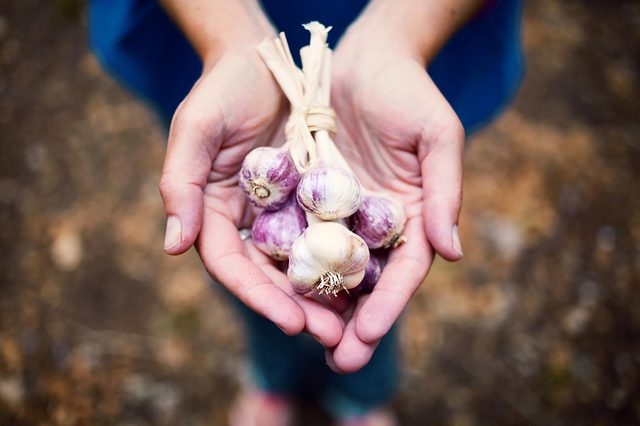
Eat garlic
This pungent herb contains allyl sulfur compounds that may stimulate the immune system’s natural defenses against cancer, and may have the potential to help the body get rid of cancer-causing chemicals and help cause cancer cells to die naturally, a process called apoptosis. The Iowa Women’s Health Study showed that women who consumed the highest amounts of garlic had a 50 percent lower risk of colon cancer compared with women who ate the least. Here’s what else can help prevent colon cancer.
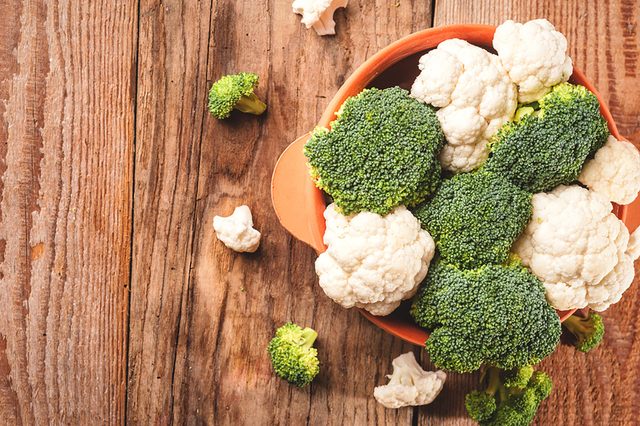
Eat cruciferous veggies
People who eat broccoli and its cousins such as cabbage, cauliflower, broccoli, and bok choy at least once per week have a lower risk of kidney cancer compared with people who consume them less than once a month, according to a multinational European study. Check out the 30 other foods proven to help prevent cancer.
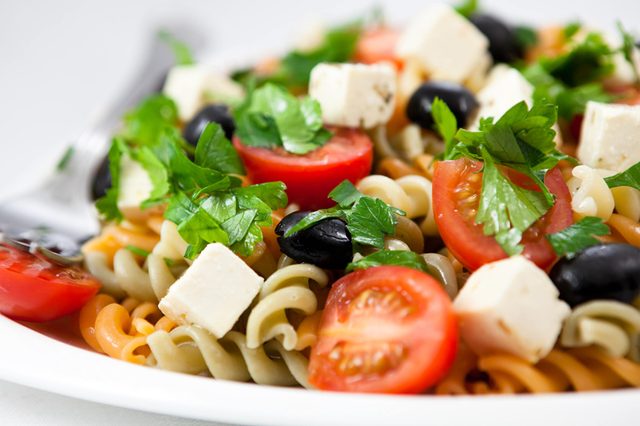
Make a cancer-fighting dinner
Sauté two cloves of crushed garlic in two tablespoons of olive oil, then mix in a can of low-sodium diced tomatoes. Stir gently until heated and serve over one cup of whole-wheat pasta. You’ll get the cancer-preventing benefits of garlic, plus the lycopene in the tomatoes protects against colon, prostate, lung, and bladder cancers, the olive oil helps your body absorb the lycopene, and the fiber-filled pasta reduces your risk of colon cancer. Don’t miss the cancers that are notoriously tricky to detect early.
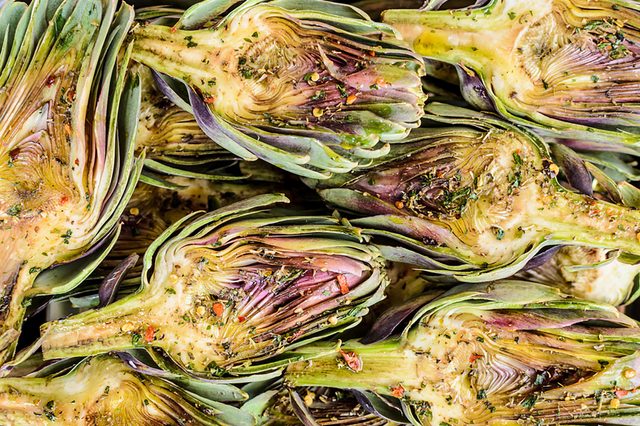
Eat artichokes
Artichokes are a great source of silymarin, an antioxidant that may help prevent skin cancer by slowing cancer cell growth. To eat, peel off the tough outer leaves on the bottom, slice the bottom, and cut off the spiky top. Then boil or steam until tender, about 30-45 minutes. Drain and eat.

Get 15 minutes of sun a day
Almost 90 percent of your body’s vitamin D comes directly from the sunlight—not from food or supplements. Studies have shown that a vitamin D deficiency can reduce communication between cells, causing them to stop sticking together and allowing cancer cells to spread, according to Cancer.net, a patient information website from the American Society of Clinical Oncology. Vitamin D may also help promote proper cell maturation and reproduction; kinks in these processes can lead to cancer growth. People with low levels of vitamin D have a higher risk of multiple cancers, including breast, colon, prostate, ovarian, and stomach, as well as osteoporosis, diabetes, multiple sclerosis, and high blood pressure. But avoid overexposure, which can cause skin cancer—you only need a few minutes a day to produce adequate vitamin D levels. Here are the 37 more ways science says you can cut your cancer risk.

Marinate your meat
The high temperature required to grill meat (and broil and fry, for that matter) creates compounds called heterocyclic amines that are linked to cancer. These compounds may damage DNA enough to spur the growth of tumors in the colon, breast, prostate, and lymph cells. One University of Minnesota study found that eating charred meat regularly can increase pancreatic cancer risk by up to 60 percent. According to research in the Journal of Agriculture and Food Chemistry, marinating red meat in beer or wine for two hours prior to cooking reduced the amount of these harmful compounds. Kansas State University research found that rubbing rosemary onto uncooked meats blocks the formation of these cancer-causing compounds by up to 100 percent. You can also rub a couple of cut kiwifruit on a low-fat cut of meat as a tenderizer to help protect the meat during grilling from those harmful cancer-causing compounds.
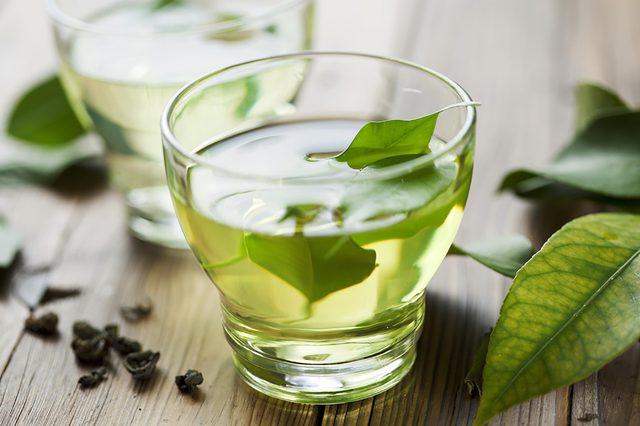
Drink green tea
More than 50 studies on the association between tea and cancer risk have been published since 2006, according to the National Cancer Institute. While findings have been inconsistent—partly due to variations in types of tea and differences in preparation and consumption—some papers have found tea drinkers have a reduced risk of breast, ovarian, colon, prostate and lung cancer. The healing powers of green tea have been valued in Asia for thousands of years. Some scientists believe that a chemical in green tea, EGCG, could be one of the most powerful anti-cancer compounds ever discovered due to the high number of antioxidants.

Sip a glass of beer or wine
Alcohol protects against the bacterium Helicobacter pylori, which is known to cause ulcers and may lead to stomach cancer. A study out of Queens University in Belfast found that moderate amounts of wine, beer, lager, or cider might protect against H. pylori; drinking three to six glasses of wine or one to two half-pints of beer a week showed 11 percent fewer infections. Don’t overdo it: Drinking more than one or two alcoholic drinks a day may increase your risk of mouth, throat, esophageal, liver, and breast cancers. Learn more about the signs of cancer in men that they need to stop ignoring.
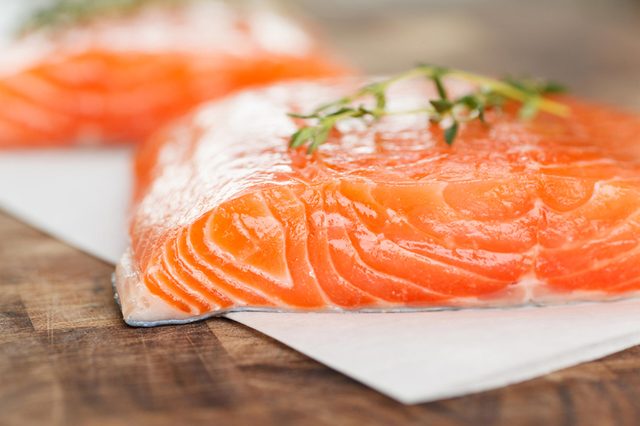
Eat wild salmon
Women who ate fish three times a week or more were 33 percent less likely to have polyps, or growths of tissue in the colon that can turn into cancer, according to a study in the American Journal of Clinical Nutrition. Fish, especially salmon, is packed with anti-inflammatory omega-3 fatty acids, which are likely responsible for the cancer-fighting effects. Australian researchers found that people who ate four or more servings of fish per week were nearly one-third less likely to develop the blood cancers leukemia, myeloma, and non-Hodgkin’s lymphoma. Other studies show a link between eating fatty fish (salmon, mackerel, halibut, sardines, and tuna, as well as shrimp and scallops) with a reduced risk of endometrial cancer in women.
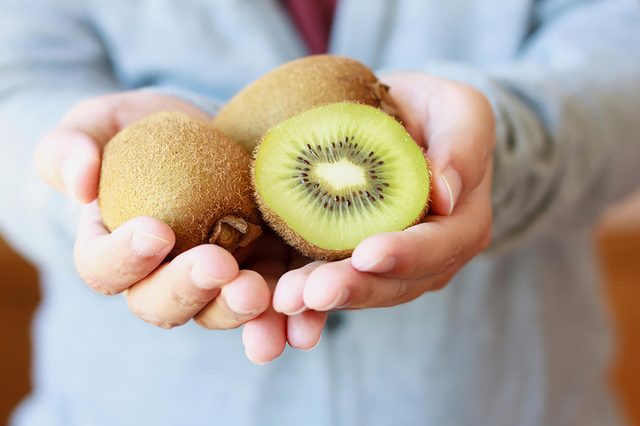
Snack on kiwi
Kiwi may be little, but they pack a punch of cancer-fighting antioxidants, including vitamin C, vitamin E, lutein, and copper. Follow these 15 things cancer doctors do to avoid cancer.

Keep your bedroom dark
Research shows exposure to light at night may increase the risk of ovarian and breast cancer in women. Light suppresses the normal production of melatonin, the brain chemical that regulates our sleep-wake cycles, which could increase the release of estrogen-fueled cancer. A study showed breast cancer risk was increased among women who didn’t sleep during the times when their melatonin levels were highest.

Eat less high-fat animal protein
After tracking food choices of more than 121,000 adults for up to 28 years, Harvard researchers found that people who ate three ounces of red meat every day were about 13 percent more likely to die—often from heart disease or cancer—before the study ended than people who didn’t eat meat. A Yale study found that women who ate the most animal protein had a 70 percent higher risk of developing non-Hodgkin’s lymphoma, while those who ate diets high in saturated fat increased their risk 90 percent. Switch to low-fat or nonfat dairy, choose poultry or fish instead of beef or pork, and use olive oil instead of butter.

Snack on red grapes
They’re great sources of resveratrol, an antioxidant that may slow cancer growth in the lymph nodes, stomach, breasts, and liver. A 2011 study from The University of Texas Health Science Center found that resveratrol inhibited skin damage that ultimately leads to skin cancer. Although all grape skins contain resveratrol, red and purple grapes have the most. Make sure you keep an eye out for these 50 health symptoms you should never ignore.
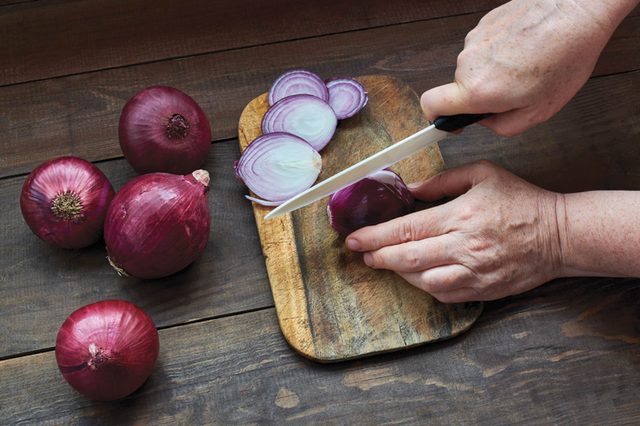
Eat onions
When it comes to cancer-fighting foods, onions are nothing to cry about. Cornell food science researchers found that that onions and shallots have powerful antioxidant properties, as well as compounds that inhibit cell growth, which appear protective against a variety of cancers. The study found that shallots, Western Yellow, pungent yellow, and Northern Red have the richest sources of flavonoids and antioxidants. Not a big fan of onion breath? Although they have less antioxidant power, you can try scallions, Vidalia onions, or chives for a milder taste.
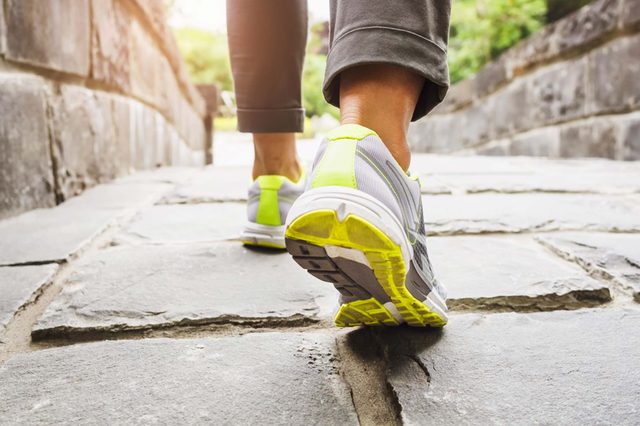
Try to walk 30 minutes a day
More than two dozen studies have shown that women who exercise have a 30 to 40 percent lower risk of breast cancer than less active women, according to the Fred Hutchinson Cancer Research Center. Moderate exercise lowers blood estrogen levels, a hormone that can affect breast cancer risk. Another study linked four hours a week of walking or hiking with cutting the risk of pancreatic cancer in half. The benefits are probably related to improved insulin metabolism due to the exercise.
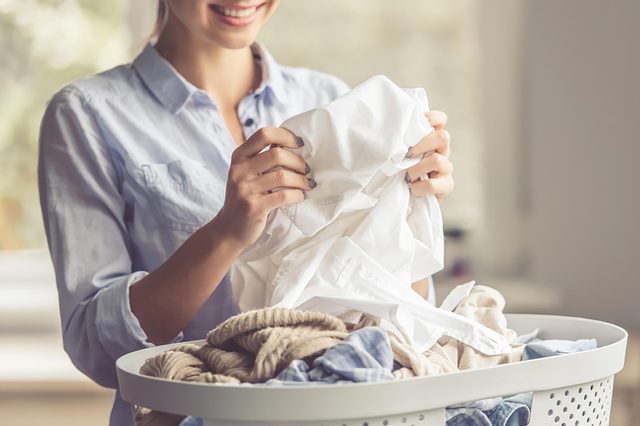
Avoid dry cleaners
Many dry cleaners still use a chemical called perc (perchloroethylene), found to cause kidney and liver damage and cancer through repeated exposure or inhalation. Buying clothes that don’t require dry cleaning, or hand washing them yourself, can reduce your exposure to this chemical. If you must dry-clean your clothes, take them out of the plastic bag and air them outside or in another room before wearing. Here is the list of jobs that may increase your risk of cancer!
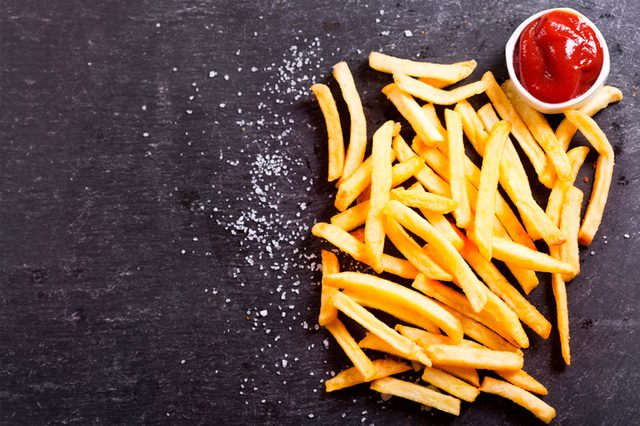
Cut out fries and chips
When foods are baked, fried, or roasted at high temperatures (think French fries and potato chips), a potential cancer-causing compound called acrylamide forms, a result of the chemical changes that occur in the foods. Studies performed on rats have shown that prolonged acrylamide exposure is a risk for multiple types of cancer. Human studies are ongoing; but even if the results are benign, it’s healthiest to switch from French fries and potato chips to foods like mashed potatoes and pretzels.

Stop tanning
Exposure to natural sun and tanning beds has been shown to increase your risk for skin cancer. But spray-on tans aren’t completely risk-free either; the chemical dihydroxyacetone (DHA) is an active ingredient in fake tanning products, including lotions and tanning spray, and the FDA warns that DHA shouldn’t be sprayed into the mouth, eyes, or nose because the risks of inhalation are unknown. When high amounts of these chemicals are breathed in, they can create free radicals, which have been linked to cell damage and cancer risk. The safest option: no tan at all. If you must, use an at-home lotion and wear protective gear. Check out the 51 things dermatologists need you to know about skin cancer.
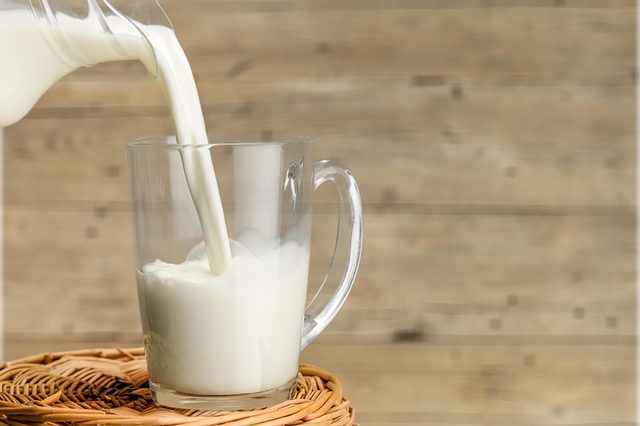
Drink milk
Recent studies have shown that calcium may protect against colon cancer: Participants in the Nurses’ Health Study who consumed more than 700 mg of calcium per day per day had up to a 45 percent reduced risk of colon cancer than those who consumed 500 mg or less per day. Although 700 mg may sound like a lot, it can add up with a cup of low-fat yogurt for breakfast (345 mg), a cup of low-fat milk with lunch (300 mg), and a cup of spinach in your salad with dinner (292 mg).

Eat sauerkraut
A Finnish study found that the fermentation process involved in making sauerkraut produces several cancer-fighting compounds, including isothiocyanates (or ITCs), indoles, and sulforaphane. To reduce the sodium content, rinse canned or jarred sauerkraut before eating. Better yet, skip the hot dog or sausage—these processed meats are associated with a greater risk of colon cancer. Read up on the 20 states with the highest cancer rates.
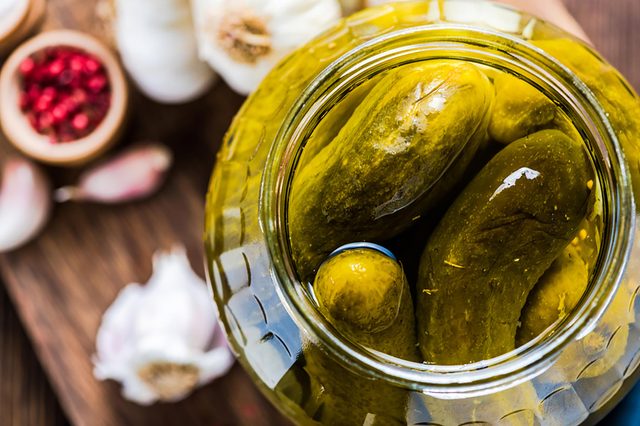
Eat fewer smoked and pickled foods
Studies find that smoked and pickled foods contain various carcinogens, so, for examples, choose cucumbers over pickles, fresh salmon over lox. Many of these pickled vegetables are common in Japanese and Korean cuisine; the number of people with gastric cancers is higher in Japan and Korea than in the United States.
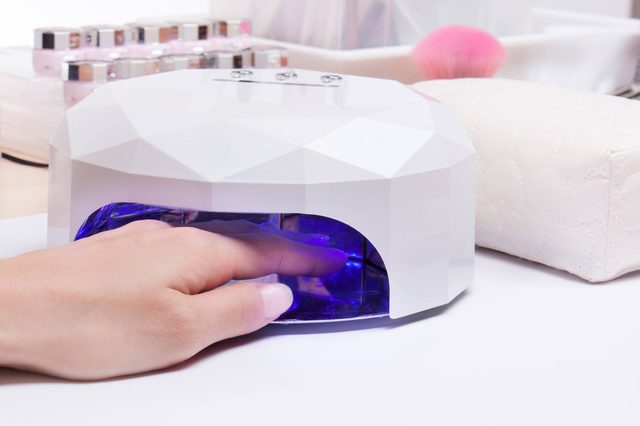
Skip drying lamps at the nail salon
Although it’s incredibly low for the average woman, ultraviolet drying lamps at nail salons do carry an increased risk of skin cancer for every use. According to Georgia Regents University, anyone who has received between eight and 208 manicures will have damaged skin cells enough to raise the risk of cancer, though every machine emits different amounts of UVA radiation. For most of the lamps tested, eight to 14 visits over 24 to 42 months will create damaged DNA. Instead, protect your hands by applying sunscreen before your mani, or letting your nails air dry.
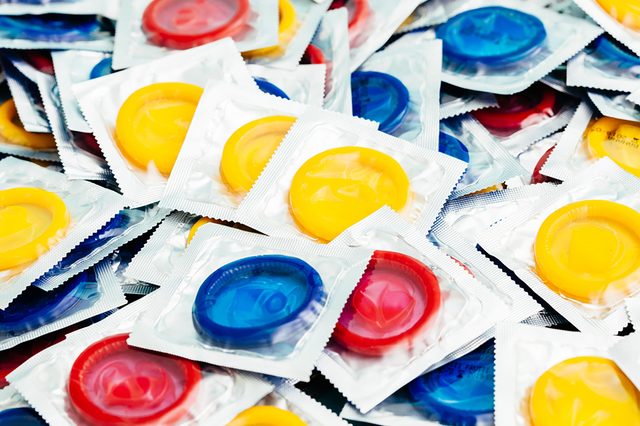
Take care of your sexual health
The more sexual partners you have (especially without condom use), the greater your risk of contracting human papillomavirus, or HPV, which can cause cervical cancer, throat cancer, and penile, vaginal, and anal cancer. The HPV vaccine is recommended for all tweens of both sexes at age 11 or 12, as well as for women up to age 26 and men up to age 21. Since the vaccine was first recommended in 2006, there has been a 56 percent reduction in HPV infections among U.S. teen girls, even with very low HPV vaccination rates, the CDC reports.
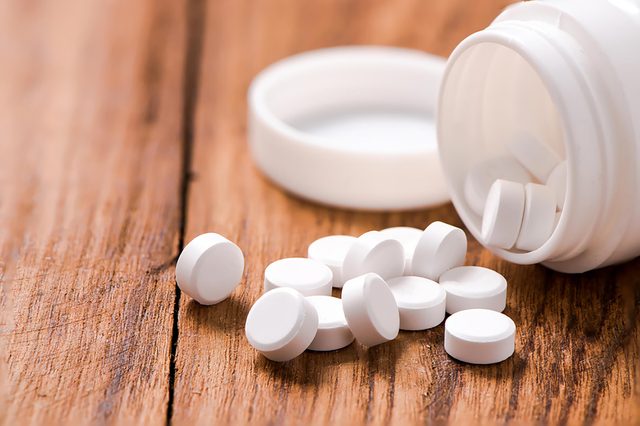
Reap the advantages of a daily aspirin Rx
If your doctor’s recommended that you take aspirin to help your heart, this may also help protect your body from cancer. A study from the U.S. National Cancer Institute found that women who used aspirin daily had a 20 percent lower risk of ovarian cancer than those who used aspirin less than once a week. (Don’t take aspirin daily without your doctor’s approval; it can cause bleeding in your digestive tract). Check out the 14 cancer warning signs your doctor should never overlook.